
Code: 01198503
Lebanon
by William Harris
For most Americans, the civil war in Beirut is their sole point of connection with Lebanon. But Lebanon, a crossroads of major religious communities, has held a central place in the geopolitical significance of the eastern Mediter ... more
- Language:
 English
English - Binding: Hardback
- Number of pages: 400
Publisher: Oxford University Press, 2012
- More about this

49.90 €
Availability:
50/50 We think title might be available. Upon your order we will do our best to get it within 6 weeks.
We think title might be available. Upon your order we will do our best to get it within 6 weeks.We search the world
You might also like
-

Black Hills
11.85 € -18 % -

Tree Wisdom
11.65 € -12 % -

Hobit
10.63 € -12 %
Give this book as a present today
- Order book and choose Gift Order.
- We will send you book gift voucher at once. You can give it out to anyone.
- Book will be send to donee, nothing more to care about.
Availability alert
Enter your e-mail address and once book will be available,
we will send you a message. It's that simple.
More about Lebanon
You get 123 loyalty points
 Book synopsis
Book synopsis
For most Americans, the civil war in Beirut is their sole point of connection with Lebanon. But Lebanon, a crossroads of major religious communities, has held a central place in the geopolitical significance of the eastern Mediterranean and the Middle East for many centuries. In this book, William Harris synthesizes the history of Mount Lebanon and the surrounding areas within the modern Lebanese state-from the Islamic conquest of the Levant to modern times. Harris relates the communities that characterize Mount Lebanon and its vicinity, while interpreting the evolution of modern Lebanon in its multi-communal context. He traces the consolidation of Lebanon's Christian, Muslim, and Islamic derived sects from their origins between the sixth and eleventh centuries. The identities of Maronite Christians, Twelver Shia Muslims, and Druze, the mountain communities, developed alongside assertions of local chiefs under external powers from the Umayyads to the Ottomans. The chiefs began interacting in a common arena when the Druze lord Fakhr al-Din Ma'n achieved domination of the mountain under the Ottomans in the early seventeenth century. The book offers a fresh perspective on subsequent trends, knitting together the interplay of the elite under the Sunni Muslim Shihab relatives of the Ma'ns after 1700 with demographic instability as Maronites overtook Shia as the largest community and expanded into Druze districts. By the 1840s many Maronites conceived the common arena as their patrimony. Maronite/Druze conflict ensued. Modern Lebanon arose out of European and Ottoman intervention in the 1860s to entrench sectarian peace in a special province. In 1920, after the Ottoman collapse, France and the Maronites enlarged the province into the modern country, with a pluralism of communal minorities headed by Maronite Christians and Sunni Muslims. The book considers the flowering of this pluralism in the mid-twentieth century, and the strains of new demographic shifts and of social resentment in an open economy. External intrusions after the 1967 Arab-Israeli war rendered Lebanon's contradictions unmanageable and the country fell apart. The book contends that Lebanon has not found a new equilibrium and has not transcended its sects. There is an uneasy duality: Shia have largely recovered the weight they possessed in the sixteenth century, but Christians, Sunnis, and Druze are two-thirds of the country.
 Book details
Book details
Book category Books in English Humanities History Regional & national history
49.90 €
- Full title: Lebanon
- Author: William Harris
- Language:
 English
English - Binding: Hardback
- Number of pages: 400
- EAN: 9780195181111
- ISBN: 0195181115
- ID: 01198503
- Publisher: Oxford University Press
- Weight: 649 g
- Dimensions: 241 × 170 × 37 mm
- Date of publishing: 19. July 2012
Trending among others
-
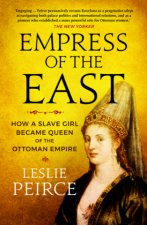
Empress of the East
13.49 € -28 % -

Beyond Band of Brothers
15.43 € -28 % -

Conquest of New Spain
13.39 € -31 % -

Histories
13.08 € -9 % -

Families Who Made Rome
17.48 € -28 % -
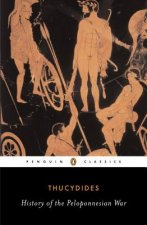
History of the Peloponnesian War
16.97 € -20 % -

Seven Military Classics Of Ancient China
20.65 € -21 % -

Butchering Art
12.06 € -16 % -

Great Game
15.43 € -28 % -

Private Lives of the Tudors
15.43 € -28 % -

Rise And Fall of Athens
20.75 € -11 % -

Stayin' Alive
20.45 € -18 % -

Hezbollah
16.46 € -10 % -
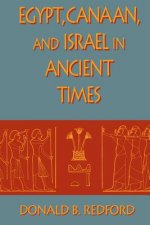
Egypt, Canaan, and Israel in Ancient Times
62.28 € -

How the West Won
15.43 € -20 % -

Learning to Eat Soup with a Knife
19.42 € -12 % -

Selected Writings 1920-1969
32.21 € -
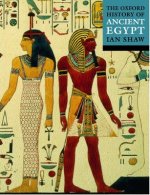
Oxford History of Ancient Egypt
22.59 € -28 % -

Quest for Decisive Victory
38.45 € -

Traveller's History of Southeast Asia
12.98 € -21 % -

Great Britain's Great War
13.08 € -18 % -

Kublai Khan
14.72 € -15 % -

Syria
12.78 € -19 % -
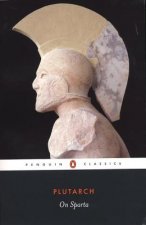
On Sparta
13.49 € -28 % -

Xenophon: Hellenika I-II.3.10
33.54 € -10 % -

Diary of Samuel Pepys: A Selection
19.12 € -22 % -

Knight Hospitaller
17.68 € -21 % -

Knight Hospitaller
17.68 € -21 % -

From Third World to First
27.71 € -32 % -

Concise History of Romania
25.25 € -19 % -

Hundred Years' War on Palestine
12.06 € -24 % -

Ten Myths About Israel
12.57 € -16 % -

Ethnic Cleansing of Palestine
12.88 € -26 % -

Decline and Fall of the Roman Empire
5.92 € -21 % -

Rise And Fall Of The Third Reich
21.98 € -23 % -

The Balkans, 1804-2012
20.55 € -28 % -

History of Nepal
29.35 € -18 % -

Strange Death of Europe
16.56 € -23 % -

Diana: Her True Story - In Her Own Words
11.04 € -26 % -

The Secret Diaries Of Miss Anne Lister: Vol. 1
13.59 € -14 % -

Secret History
12.06 € -31 % -

Medieval Monsters
10.42 € -28 % -

Citizens
20.55 € -28 % -

Dictatorland
13.80 € -7 % -

Memoirs from the House of the Dead
10.53 € -

Maurice's Strategikon
29.45 € -5 % -

Voynich Manuscript
39.57 € -1 % -

Last Voyage of the Lusitania
17.68 € -12 % -
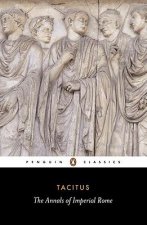
Annals of Imperial Rome
13.49 € -28 %
Collection points Bratislava a 2642 dalších
Copyright ©2008-24 najlacnejsie-knihy.sk All rights reservedPrivacyCookies


 15549 collection points
15549 collection points Delivery 2.99 €
Delivery 2.99 € 02/210 210 99 (8-15.30h)
02/210 210 99 (8-15.30h)